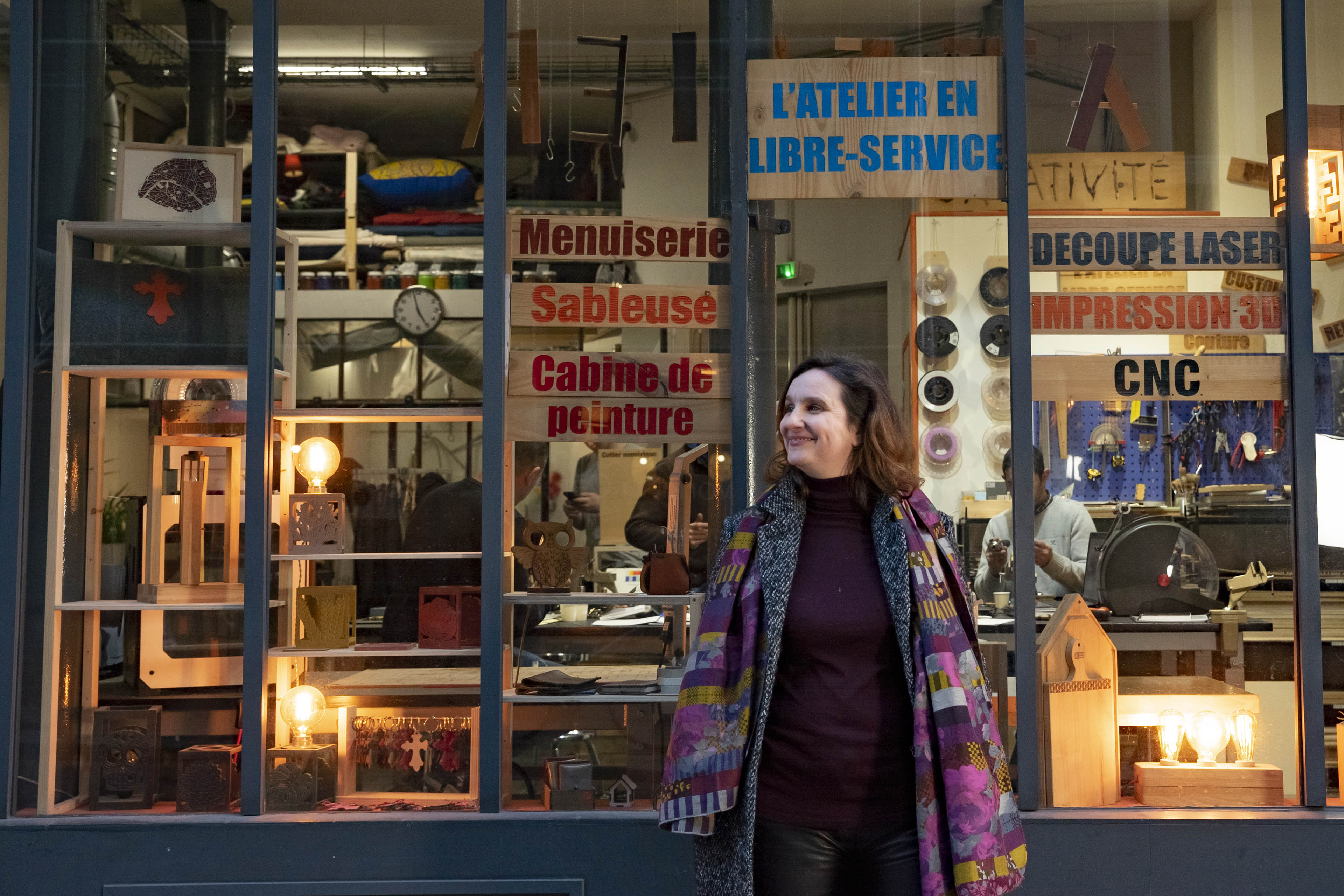The big idea
3D printing and laser cutting technologies have lots of potential customers, but they cannot always afford or access the technologies – or even understand them enough to consider them as an effective option. MyFabLab wanted to change that.
The company does not own or operate any equipment; instead, its website acts as a platform, connecting customers to independent workshops. Customers submit their designs to MyFabLab, which then sends them on to a workshop where the order is fulfilled.
The company builds on trends in technology that have empowered these smaller workshops. “What this revolution is doing is completely changing the balance between large-scale and small-scale manufacturers,” says Constance.
“With the digitalization of small production machines, you can have smarter, leaner production processes,” she explains. “This means that smaller players can take part because what they can do is mock customization on very small series and pre-series, as testers, which bigger production companies are not equipped to do.”
The company continues to innovate. One of the biggest changers for MyFabLab, according to Constance, was the introduction of the price calculator, allowing customers to enter the dimensions of their product on their website, and have their order processed automatically.
The impact
MyFabLab is measuring its success by how effectively it is helping workshops. Many of these workshops have their own regular, large-order clients, but work can be intermittent leading to under-utilized equipment. Directing customers to these workshops helps maximize machine use.
Constance also stresses the diversity of customers using the service. “We've seen young start-ups, jewellery designers, set designers, protestors, people wanting bespoke products for conferences,” she says. This is core to MyFabLab – expanding access to these technologies to non-traditional customers.
She also sees MyFabLab as part of a wider trend in manufacture and supply. “It brings production closer to the consumer and reduces shipping and carbon use. Objects get made in small batches, in local workshops. Because it's the machining file that travels across the world, not the product.”
MyFabLab taps into an important fact that goes hand-in-hand with the radical technological leaps in the Fourth Industrial Revolution: technology may be getting better all the time, but it’s not necessarily getting more affordable or accessible. By creating a platform that enables distributed product development and manufacturing, Constance and MyFabLab are able to bring the power of 3D-printing and laser cutting technologies to entrepreneurs and companies who would normally be priced out, opening up whole new ways of working.
What we can learn
“While the growth of innovation labs and distributed manufacturing has been a trend for several years, today it has become increasingly vital,” says Sachin Lulla, EY Global Digital Strategy & Transformation Leader, Advanced Manufacturing & Mobility division.
“With the arrival of COVID-19, manufacturing and supply chains are being reconfigured,” Lulla explains. “More companies will start to make where they sell, rather than rely on complex supply chains and manufacturing everything in the lowest cost country. The only way to make that possible at scale is to tap into technologies such as AI and 3D printing to enable people to work with smaller micro factories, across a flexible, distributed, networked supply chain.”
The developing partnerships this ecosystem approach encourages are central to its success, Lulla continues. “As I’ve been talking to manufacturing chief digital officers over the last few years, their top priority has increasingly been facilitating co-creation and co-innovation across their business ecosystem,” he explains. “MyFabLab’s approach proves this is possible. Because ultimately the challenge isn’t so much finding the equipment as it is discovering and tapping into the right expertise to devise more robust, flexible, networked ways of working.”
The EY organization is actively involved in developing this new approach to manufacturing and product development via a network of EY wavespaceTM design centers around the world and with ecosystem collaborators such as MyFabLab. “This is how the future of manufacturing comes to life,” Lulla says. “We started developing this approach as part of the NextWave Manufacturing strategy, and taking a very intentional approach to developing a broad set of collaborations with universities and innovation labs around the world. Just as with MyFabLab, it’s about helping effective product development and delivery via a networked value chain of partnerships and alliances.”
The story of industry 4.0 is not just one of technological development. It is a story about networks and democratization of access; where the biggest winners aren’t always the ones with the most technical capabilities in-house, but those who are able to find ways to bring these capabilities into brand new markets – fast. Identifying the right networks, partnerships and ecosystems to bring your vision to life is going to be the single most important part of this new era of manufacturing and innovation.
Summary
EY Presents: Next Up a series of innovative individuals and companies who are helping to build a better working world. Constance Lavergne, founder and CEO of MyFabLab has created smarter, leaner production processes empowering small businesses to innovate.


